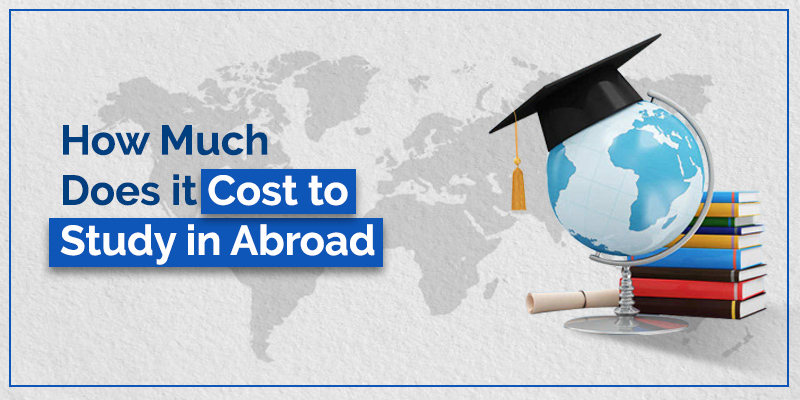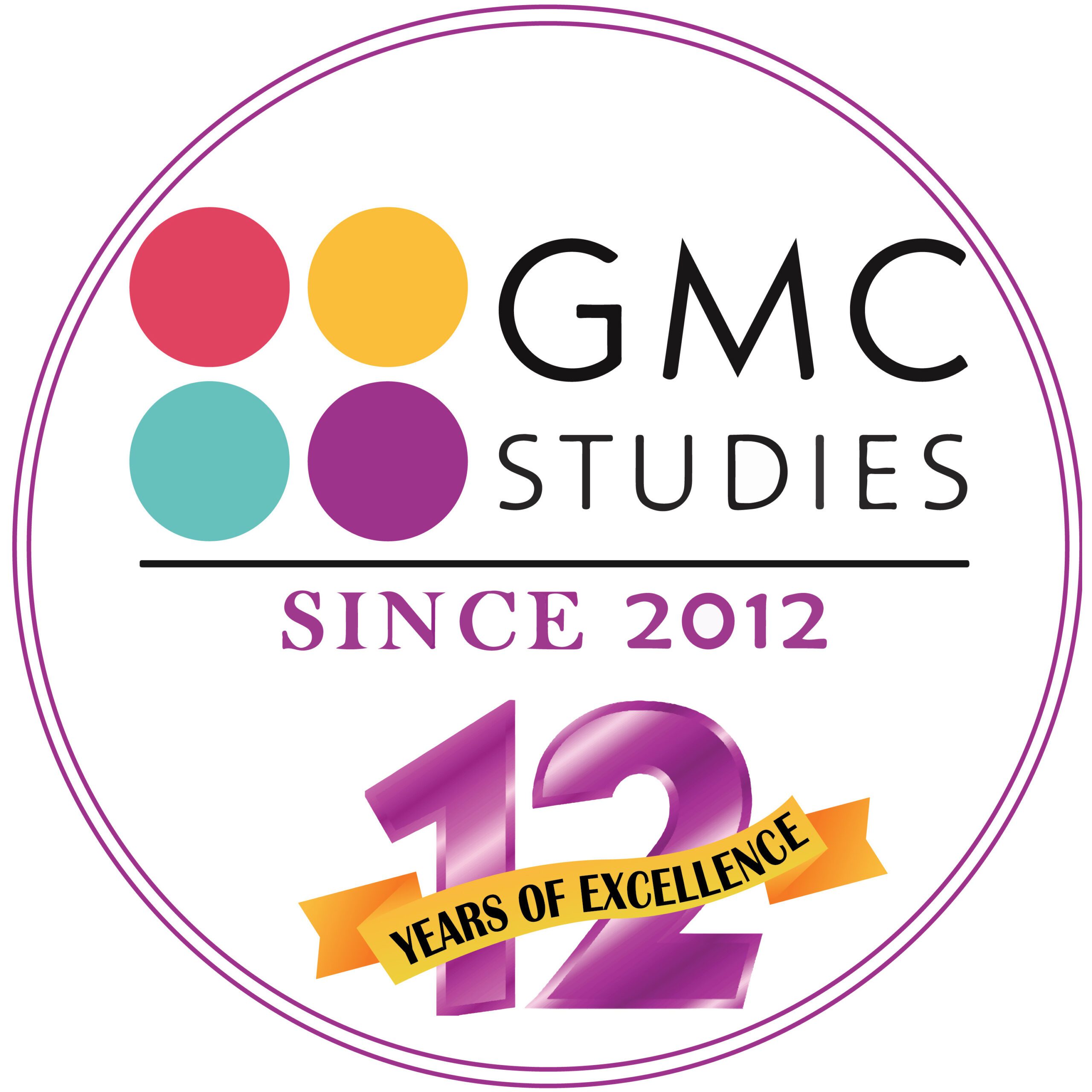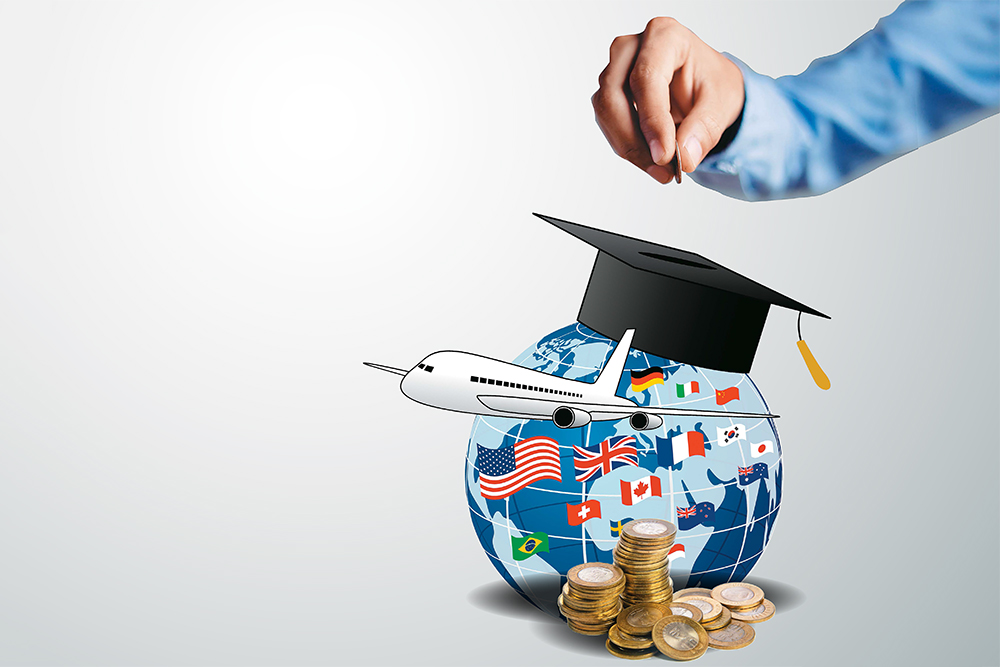A student found herself in the middle of an old city where people were speaking a language she didn’t know. Seeing the buildings that were hundreds of years old and seemed to be telling stories of the past made her understand how much she had been immersed abroad. It was during this time of cultural and academic awareness that the need to be ready was made very clear.
Being ready is important.
Getting used to a new school setting abroad is like going on stage for a big show. Every little thing, from national norms to school standards, is very important to your success.
Academic Preparedness for Study Abroad Success

Find out a lot about the academic requirements and course offerings at the school you want to attend. Know what level of intellectual challenge you can expect. To do well in school in a different country, you need to carefully understand how things work there.
Make sure you know how to speak the language of teaching, whether that’s English for a school in the US or a different language for studies abroad. Language barriers can often get in the way of doing well in school, so improving language skills ahead of time is a smart move.
Look at the ways people currently study and change them so they fit with the way things are taught at your new school. To do well in school, you need to know the proper conduct and methods for studying.
Focused Course Selection
By picking your courses carefully, you can improve your academic path, learn more about your field, and make yourself more marketable after you graduate. Put lessons that will really push you academically and help you reach your job goals at the top of your list.
When you change up your course load, try to find a mix between classes that are specific to your major and options that will help you learn more about other things. Keep in mind that classes abroad might have different requirements, be harder, or be set up in a different way than classes you take at home.
Pick courses that build on your academic skills and help you get where you want to go in your job.
When it comes to foreign education, it’s very important to find out how the courses you want to take are taught and how they are graded. Know that there are many different ways to teach, and that these will affect how you connect with your teachers and classmates and, eventually, how you learn.
Language Proficiency
Achieving competency in the local language can profoundly impact your academic success and cultural immersion.
- Complete a language course before departure to grasp the basics of the local language.
- Use language-learning apps to enhance vocabulary and conversational skills.
- Engage in language exchange meet-ups or find a conversation partner to practice with.
- Immerse yourself in the language by reading, watching, and listening to local media.
- Seek out courses taught in the local language to strengthen your comprehension and fluency. Consistent practice and exposure are key to mastering a new language.
An adeptness in the local vernacular will not only ease day-to-day interactions but also enrich your academic discussions and collaborations.
Starting Cultural Adaptation: Strategies for Fitting In and Thriving Abroad
Being patient and taking steps to fit in are important for adapting to a new culture. Start by taking part in local events and traditions. This will help you understand and appreciate the subtleties of the host country’s culture. Take the time to watch and take part in neighborhood events. This will help you fit in more naturally with society. This way of doing things can help you deal with culture shock and make your time abroad better overall.
It’s also important to keep an open and adaptable mind, which is sometimes called “cultural agility.” Accept the differences you face instead of fighting them; see them as chances to learn and grow as a person. Actively look for different points of view and talk to people to learn more about their culture. Over time, these habits will help you deal with the problems that come with adjusting to a new culture and make you feel like you fit in your host country.
Local Customs and Etiquette
As a student abroad, navigating local customs and etiquette can seem daunting at first. It’s crucial to familiarize yourself with societal norms and protocols of your host country, such as modes of address, appropriate dress, and behavior in public spaces. Indeed, knowing how to conduct oneself can significantly reduce the risk of inadvertently offending locals.
Learn the dining etiquette specific to your destination.
Knowing the local table manners is also imperative—whether it’s using chopsticks properly in Asia or understanding the European style of using cutlery. For instance, in some cultures, it is considered respectful to finish all the food on your plate, while in others, it signifies that the host has not provided enough food.
Be aware of the value placed on punctuality.
In many countries, being on time is paramount, whereas in others, a more relaxed approach to time might be the norm. Adjust your schedule accordingly to respect the local perception of time. This is particularly pertinent in a scholastic setting, where timeliness can reflect your commitment and professionalism.
Adhere to local laws and regulations with diligence.
Lastly, it’s paramount that you obey the legal and civic rules of your host nation with utmost diligence. For instance, understanding traffic regulations, alcohol consumption laws, and public space ordinances ensures not only your safety but also displays respect towards the local community. Keep abreast of any changes in laws, as ignorance can lead to unintended violations.
Bridging Cultural Gaps
Learning to navigate cultural nuances is pivotal to assimilating into your new environment and building meaningful relationships. Effort invested in understanding local customs pays dividends in social harmony and personal growth.
How much does it cost to study abroad?

It can be very rewarding to study abroad, but you should think about how much it will cost. The cost of learning abroad can change based on a number of things.
To begin, school fees will make up a big part of the total cost. There are different fee rates for each university and program, so it’s important to look into and compare the prices of different countries and schools. Also, you should include in your budget the fact that living costs may be higher in some countries than others.
Besides school and living costs, there are other fees to think about. These can include the cost of applying for a visa, health insurance, and travel. It’s important to plan ahead for these costs to make sure the change goes smoothly and to avoid any unexpected financial problems.
You should look into scholarships and other forms of financial aid to help cover some of the costs. International students can get grants from many universities and other groups, so make sure you look into and apply for any funding options that may be open to you.
Overall, the cost of learning abroad will depend on the country, the university, the school, and your own personal choices about how to live. To make the best choice about learning abroad and make sure you have a great time, you need to carefully plan a budget and think about all the costs.
customs, past, and social norms of a country. Being open-minded is the key to understanding people from other cultures.
Know that body language can mean a lot of different things in different countries and is often just as important as words. Being aware of body language, eye contact, and personal space can help clear up confusion and make conversation easier.
Participatory activities like fairs, classes, and community service are great ways to get involved with your local communities. Getting involved in this way not only helps you understand other cultures better, but it also shows that you respect and want to be a part of the local way of life, which builds links across cultural gaps. Cultural competence doesn’t happen quickly; it’s a slow, deliberate process that will make your study abroad experience so much better if you do it with honesty and respect.
Money Management Abroad: Budgeting, Banking, and Financial Record-Keeping

To handle money well in a different country, you need to plan ahead and make sure your budget is in line with the cost of living there. Having a solid financial plan is essential for staying solvent and avoiding financial problems.
Learn about how financial exchange rates change so that you can use them in your everyday life. International student banking deals that are tailored to the needs of people learning abroad are helpful because they help you save money and avoid spending it on things you don’t need.
In the end, keeping a consistent record of all financial actions is both a way to keep an eye on buying habits and a defense against fraud or other financial problems.
Budgeting Essentials
The key to maintaining financial security abroad is making a budget that you can stick to. First, make a full comparison between your expected monthly costs and the money you have saved or earned.
Fixed costs, like rent and fees, and changeable costs, like food and fun things to do, should both be included in your estimates. For a healthy budget that allows for a long-term study abroad program, it is important to have a good idea of how much these costs will be.
Set aside some money in your budget for situations or costs you didn’t expect. You should set aside about 10% of your total budget for this backup, just in case you run into unexpected financial problems.
Also, learning to be careful with your money can help you spend a lot less. Spending on things you need for school and living should come before spending money on things you don’t need, and look for student deals whenever you can.
To stay healthy financially, you need to review and make changes to your budget on a regular basis. This process of going through iterations helps you quickly fix any problems and get your spending back on track with your budget.
Accessing Funds Securely
When learning abroad, safe access to your money is very important. Always choose banks with a good reputation, and if you want to be safer, think about using more than one way to take your money. Setting up a local bank account can be convenient and safe, reducing the risks that come with having large amounts of cash.
Give more weight to banks with strong online tools. This makes it easy to keep an eye on and manage funds whenever they are needed.
Also, get to know the rules and fees of the banks in your area, such as the limits on transactions and any fees. If you know about these, you can avoid losing money and having to pay more.
Using secure digital wallets and credit cards can make it safer to spend money and reduce the chance of losing or stealing. This also makes it easier to keep track of your spending, which is important for managing money abroad.
For payments, you should always use ATMs inside of banks. These are usually safer than stand-alone machines because they lower the chance of card skimming and other thieves getting into your money.
Lastly, always have a backup way to get to your money, like a credit card you can use in an emergency or money saved safely online. This protects your finances against unplanned events that could wipe out your main sources of income.
Staying Connected: Nurturing Relationships and Cultivating Cultural Balance

In the endeavor to study abroad, it is paramount to bridge the physical distance with consistent communication, ensuring the continuance of strong bonds with friends and family back home. Establish regular schedules for calls or video chats, leveraging technology such as video conferencing tools and social media platforms, which act as lifelines that tether you to your support network.
Embracing local culture should be harmonized with staying rooted to your origins, thus creating a balanced international experience. It’s beneficial to participate in student organizations or programs that connect you with other international students, as well as locals. This dual engagement fosters a sense of community overseas while reinforcing ties with your home, ensuring that while you broaden your horizons, the connection to your heritage remains unwavering.
Effective Communication Tools
Mastering a suite of communication tools is imperative for study abroad success, from email and messaging apps to collaborative platforms. Sharpen your digital literacy to navigate these mediums efficiently, maintaining clarity and cultural sensitivity in all your correspondences.
Select communication tools suited for different contexts and audiences. Quick messages may favor instant messaging, while formal matters might necessitate emails.
Time zones present unique challenges; embrace tools offering asynchronous communication, like discussion forums (for class interaction) and recorded video messages (for personal updates) to bridge this divide.
Nuanced understanding of communication etiquette across platforms is essential. For example, academic queries may require formal language and structured emails, while group projects might rely on more casual, instant digital collaboration platforms.
Leverage technology to maintain meaningful relationships despite geographical separation, ensuring you use audio and video calls judiciously to enrich your connections. Such tools can help replicate face-to-face interactions and ease the emotional strain of distance.
Finally, never underestimate the power of language learning tools—which can be software or applications—to break down barriers. They enable smoother communication with local peers and can be instrumental in your academic and social integration abroad.
Building a Support Network
Building a robust support network is critical while studying abroad. It’s not just about having someone to borrow notes from or ask for guidance, it’s about creating a familial environment in an unfamiliar setting. Ensuring you have reliable peers provides psychosocial stability, forming a critical component of your well-being. Moreover, such connections often lead to shared resources and insights that might be difficult to access otherwise.
Connect with academic advisors and faculty members regularly. Engage in community groups related to your interests.
It’s essential to feel rooted in your new environment – pursue hobbies that connect you with like-minded individuals. Extracurricular activities offer a unique avenue for building friendships and establishing a community that resonates with your passions, ensuring a more holistic, enriching experience abroad.
Remember to nurture relationships back home, keeping an emotional anchor.
Maintaining connections with your family and friends in your home country is paramount. While embracing your new milieu, it’s vital to have a continuum of support that spans the globe, tethering you to familiar grounds even as you explore new frontiers. This dual-faceted network is the quintessence of thriving in a foreign academic atmosphere.
Choosing Your Study Destination: The Importance of Thorough Preparation and Destination Guides

Thorough preparation is crucial when selecting your study destination, ensuring your choice aligns with both academic and personal aspirations. Pore over destination guides with a discerning eye, considering climatic conditions, cultural nuances, language barriers, and safety standards.
Destination guides are indispensable resources that offer a comprehensive overview of potential study locales. They include crucial details on visa requirements, accommodation options, local transportation systems, and juxtapose the cost of living against budget constraints. These guides serve as a blueprint, helping you navigate the terra incognita of a foreign academic landscape, laying the groundwork for a successful tenure abroad.
In addition, cultural norms and academic expectations vary significantly across geographical borders. Properly curated destination guides help bridge this gap, offering insights into the local etiquette, classroom dynamics, and societal expectations — knowledge that is paramount in adapting seamlessly into your new scholastic environment.
Finally, reputable destination guides provide perspectives on leisure and recreational opportunities available in the region. They spotlight local festivals, historic landmarks, and natural wonders—essential for a well-rounded experience. Engage with these guides to curate your personal adventure, fostering a profound connection with your chosen environment, enriching your academic journey with cultural immersion and memorable escapades.
Program Reviews
When considering study abroad programs, diligent research into participant feedback offers invaluable insights into their effectiveness and reliability. Analyze these reviews critically, seeking patterns that indicate the program’s strengths and developmental areas.
Check our In-depth Guide to Choosing the Right Study Abroad Program
Reviews can highlight specific aspects of the study abroad experience, such as accommodation quality and academic support.
Furthermore, personal testimonials often provide a glimpse into the day-to-day realities of life within the program, giving you a better understanding of what to expect.
Program reviews serve as a gauge for potential cultural integration and academic rigor, addressing key concerns and setting realistic expectations before your journey begins.
By thoroughly examining the breadth of reviews, you guard against potential biases and can discern between one-off grievances and systemic issues that could impact your experience.
Ultimately, your due diligence in reviewing others’ experiences arms you with knowledge to make an informed decision about which program aligns with your educational and personal growth objectives.
Conclusion
Overall, if you are ready to totally engage yourself, have planned your activities ahead of time, and have a clear goal, your study abroad experience can be very beneficial and educationally changing.
Being willing to work hard and keep an open mind are important for a good trip abroad.
Know that every day you spend in a new country is a chance to learn and grow—a chance to push yourself in school and with other people.
You can get around cultural differences and make lasting bonds with people around the world if you carefully plan your move and get involved with your new community.
Remember that your time abroad isn’t just for school; it’s a one-of-a-kind chance to become more resilient, flexible, and knowledgeable about the diverse cultures and peoples that make up the world.
Lastly, let your time abroad change you as a person. When you come back, make sure you have a lot of new information and experiences that will help you in your future work and personal goals.
Study Abroad Essentials: Frequently Asked Questions (FAQ’s)
1. What documents do I need to prepare before studying abroad?
Before studying abroad, you’ll typically need your passport, visa (if required), acceptance letter from your host institution, proof of financial support, medical insurance, and any other relevant documents specific to your destination.
2. How do I choose the right destination for my study abroad experience?
Consider factors such as academic programs offered, language spoken, cultural attractions, cost of living, safety, and personal interests when choosing a study abroad destination. Research extensively and consult with advisors or alumni who have studied in your potential destinations.
3. What are some important cultural considerations to keep in mind when studying abroad?
Respect local customs, traditions, and social norms. Take the time to learn about the cultural practices, etiquette, and taboos of your host country. Open-mindedness, flexibility, and a willingness to adapt will help you navigate cultural differences effectively.
4. How can I manage my finances while studying abroad?
Create a budget that includes tuition fees, accommodation, transportation, food, travel, and personal expenses. Look for scholarships, grants, and part-time job opportunities. Use financial management apps to track your spending and avoid overspending.
5. What are the best ways to stay connected with family and friends back home?
Stay in touch through messaging apps, social media, video calls, and emails. Set regular communication schedules to maintain close connections with your loved ones while abroad. Share your experiences, photos, and updates to keep them involved in your journey.
6. How do I deal with homesickness while studying abroad?
Stay engaged in activities, join clubs, and make new friends to combat homesickness. Keep in touch with loved ones, but also focus on embracing new experiences and opportunities. Remind yourself of the reasons you chose to study abroad and stay positive.
7. What should I pack for my study abroad trip?
Pack essentials such as clothing suitable for the climate, toiletries, important documents, medications, electronics, adaptors, and any items specific to your destination. Consider packing light and leaving room for souvenirs or items you may acquire abroad.
8. How can I make the most out of my study abroad experience academically?
Take advantage of unique academic opportunities such as internships, research projects, and language courses. Engage with professors, participate in class discussions, and immerse yourself in the local academic culture. Set academic goals and strive to achieve them.
9. What steps should I take to ensure my safety and well-being while abroad?
Familiarize yourself with local safety protocols, emergency contacts, and healthcare resources. Stay aware of your surroundings, trust your instincts, and avoid risky situations. Keep copies of important documents and register with your embassy or consulate.
10. How can I overcome language barriers while studying abroad?
Take language classes before and during your study abroad experience. Practice speaking with locals, watch movies or TV shows in the local language, and use language learning apps. Don’t be afraid to make mistakes and embrace opportunities to improve your language skills.



